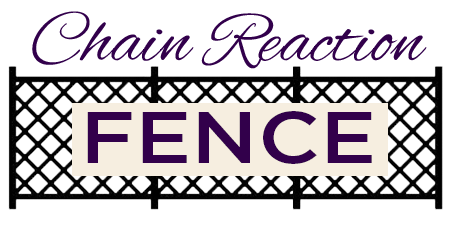Protecting your investment, and ensure the safety of your livestock! Quality fencing not only secures your property but also improves “curb appeal”. Chain Reaction Fencing is your local farm fencing expert, with years of experience in finding the “just-right” fence for your ranch or agricultural property in Marion County and the surrounding areas.
When do you Need an Agricultural Fence?
Fencing serves multiple essential functions on a farm or ranch, including:
- Security: A well-constructed fence acts as a barrier against intruders, safeguarding your property from theft and vandalism.
- Livestock Management: Proper fencing keeps animals contained, preventing them from wandering into dangerous areas or neighboring properties.
- Crop Protection: Fences can deter wildlife from damaging your crops, ensuring a successful harvest.
- Aesthetic Enhancement: A thoughtfully designed fence can improve the overall appearance of your property, adding value and charm.
Types of Fencing Materials and Their Benefits
There are several fencing materials and styles to consider for agricultural fencing, each offering unique advantages. Below is a comparison table of common fencing options:
| Type of Fence | Material | Best Suited For | Advantages | Disadvantages |
|---|---|---|---|---|
| Barbed Wire | Steel | Cattle, Horses | Cost-effective, Durable | Can injure animals, Limited visibility |
| Wooden Fence | Wood | General Livestock | Attractive, Strong | Requires maintenance, Higher cost |
| Electric Fence | Wire | All Livestock | Effective deterrent, Flexible | Requires power source, Initial setup cost |
| Vinyl Fence | Vinyl | Horses, Decorative | Low maintenance, Attractive | Higher cost, Less sturdy |
In conclusion, investing in the right fencing solution is essential for protecting your agricultural investments and ensuring the safety of your livestock and crops. By understanding the various options available and considering expert advice, you can make a well-informed decision that meets your needs.
Key Considerations When Choosing Fencing
When selecting the right fencing for your agricultural needs, consider the following factors:
- Purpose: Determine whether the primary function of the fence is to contain livestock, protect crops, or provide security.
- Durability: Assess the longevity of the materials in relation to your local climate and environmental conditions.
- Maintenance: Consider how much upkeep you are willing to commit to over time, as some materials require more care than others.
- Cost: Evaluate both the initial installation costs and the long-term expenses associated with maintenance and repairs.
Yeehaw! Chain Reaction to the rescue! A local Ocala horse farm was struggling to keep their livestock safe after several animals wandered onto a nearby road. Concerned for their safety, the owner contacted Chain Link Fencing in Ocala, FL. The team quickly installed durable farm fencing tailored to the property’s layout. Not only did it keep the animals secure, but it also gave the owner peace of mind and improved the overall look of the property. Since then, they’ve recommended Chain Link Fencing to every neighboring farm.
Pros and Cons of Common Fencing Types
Understanding the advantages and disadvantages of each fencing type can help you make a more informed choice. Below is a detailed comparison:
| Type of Fence | Pros | Cons |
|---|---|---|
| Barbed Wire |
|
|
| Wooden Fence |
|
|
| Electric Fence |
|
|
| Vinyl Fence |
|
|
How Chain Reaction Fencing Will Help You…
Here are some essential takeaways to keep in mind when selecting fencing for your agricultural needs:
- We assess the specific requirements of your property and livestock before providiing the fencing options.
- We talk about the long-term implications of your choice, including maintenance and replacement costs.
- We check in on special cases with the experts or agricultural extension services for tailored advice based on our region.
- We understand and comply with all local regulations regarding fencing, especially near property lines or public roads.
Choosing the right fencing solution is a critical decision for any agricultural operation. By understanding the various types of fencing available, their pros and cons, and the key factors to consider, Chain Reaction Fencing will help you can make an informed choice that meets your needs. Whether you prioritize security, aesthetics, or livestock management, the right fence will enhance your agricultural practices and protect your investments



